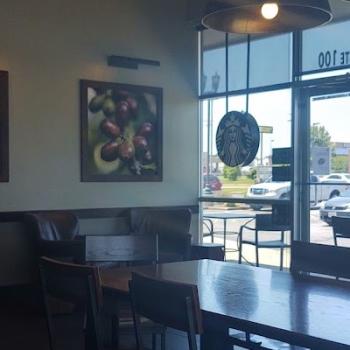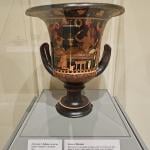1 Corinthians 11.27-34
Paul does not seem as concerned with the bread and the grape juice, as he is with the way the Corinthians are partaking of them. Let’s not retrace all of Church history on the bread and grape juice. The Great Reformation is part of a time period where many Christian faiths change.One Magisterial Reformer says Jesus Christ is present at communion.
Another says communion is a ordinance, and there are others before and after.i. Martin Luther
Let’s review the thoughts of one Continental Reformer and one Early Church Father before 450 A.D. Consider one of Roger Olson’s quotes from Martin Luther, a Magisterial Reformer:Just as the incomprehensible and omnipresent God draws near to a man in the humanity of Jesus Christ, so the incomprehensible and omnipresent humanity of Christ again draws near to and can be grasped by men in the Lord’s supper.[1]
Martin Luther says there is a: “real presence . . . in, with and under the elements.” He describes Christ’s real presence in terms like, “incomprehensible . . . omnipresent . . . draws near . . . real presence.”[2]ii. Justin Martyr
Everybody loves Justin Martyr. Because Justin is in Rome, but he writes in Greek, he is widely accepted by both the Greek church and the church in the West. Robert Webber says:Justin’s description of the bread and wine as the body and blood of the Lord was neither the later Catholic doctrine . . . nor the Protestant concept . . . Justin’s understanding may be described as “real presence.”[3]
If Martin Luther and Justin Martyr were here today, they both might agree on “real presence.”iii. Heidelberg Catechism
Mark Noll translates original sources like the Heidelberg Catechism, from the Reformation era: “the bread and the cup of the Lord which are given to me as sure signs.”[4] In the Pentecostal Church of God, we believe in communion as both “ordinance” and “memorial.”[5] Perhaps we could agree with the Heidelberg Catechism, that the elements are “signs” pointing to truths.iv. Paul and the Corinthians
Bread and grape juice may not be Paul’s central concern, but they help us recognize this as a sacred meal. Our Lord breaks the bread, blesses it, and adds meaning:and when He had given thanks, He broke it and said, “Take, eat; this is My body which is broken for you; do this in remembrance of Me.” 1 Cor 11.24, NKJV
Jesus Christ also offers “the cup of blessing,” and adds meaning:The cup of blessing which we bless, is it not the communion of the blood of Christ? The bread which we break, is it not the communion of the body of Christ? In the same manner He also took the cup after supper, saying, “This cup is the new covenant in My blood. This do, as often as you drink it, in remembrance of Me.” 1 Cor 10.16; 11.25
Paul does not seem as concerned with the bread and the grape juice, as he is with the way the Corinthians are partaking of them. Do the Corinthians recognize communion as a sacred meal, at the least? Do we?












